Optimizing Performance in Horse and Rider as a Unit from Farmhouse Chiropractic
August 22, 2024 Comments Off on Optimizing Performance in Horse and Rider as a Unit from Farmhouse Chiropractic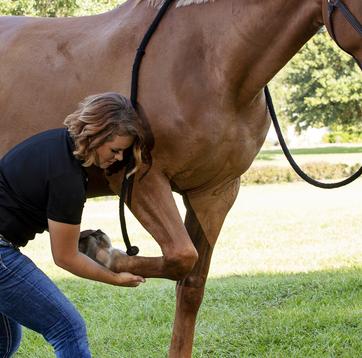
By Dr. Jillian Johnson, DC, AVCA, Farmhouse Chiropractic: Ensuring both the horse and rider receive proper chiropractic and wellness services is crucial for achieving optimal performance, and harmony in equestrian activities. Riding is physical symbiosis in motion. Understanding the interplay of both horse and rider and how they affect each other can lead to […]
Continue reading …Effect of Music on Response to Sudden and Unexpected Stimuli
August 1, 2024 Comments Off on Effect of Music on Response to Sudden and Unexpected Stimuli
From Equine Science Update: The living conditions imposed on horses inevitably expose them to stress-inducing situations. Music appears to be a promising tool for managing such stress, although its benefits may diminish with repeated exposure. A study by Camille Eyraud and colleagues aimed to determine whether music could mitigate horses’ reactions to unexpected stimuli and […]
Continue reading …Showmanship Schooling Guide with Jenny Frid
July 31, 2024 Comments Off on Showmanship Schooling Guide with Jenny Frid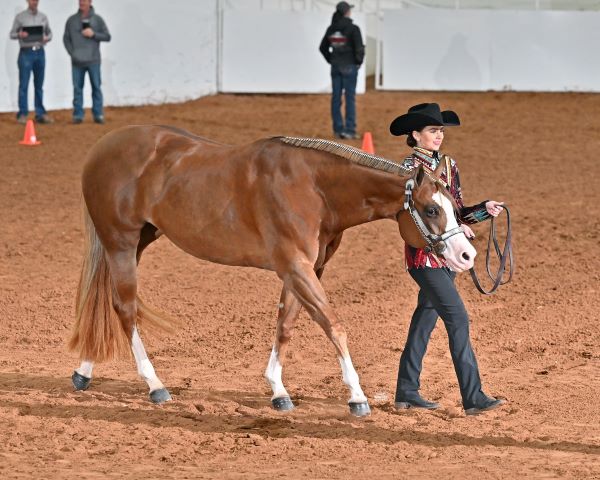
Riders are always working be at the top of their game. Back in 2020, we consulted with top trainers for schooling guides while we were stuck at home! The exercises they provided based on their experience are incredible and worth resharing just in time for your shows. Below, find a Showmanship exercise from Jenny Frid: […]
Continue reading …Stomach Ulcers in Horses: Symptoms, Diagnosing and Treating
July 30, 2024 Comments Off on Stomach Ulcers in Horses: Symptoms, Diagnosing and Treating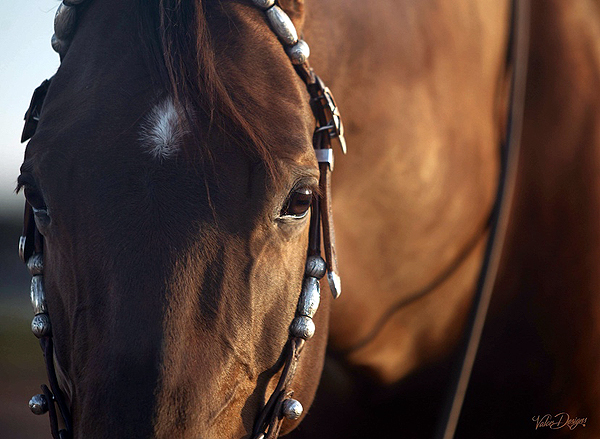
From AQHA Corporate Partner Boehringer Ingelheim, courtesy of AQHA Poor performance in competition? Cranky when being cinched up? Uncharacteristic general crabbiness? It could be your horse is trying to tell you something. “It’s certainly possible for a trained horse to have a bad day, but as a general rule, they aren’t emotional beings like humans, […]
Continue reading …Choosing How You Want To Be Remembered
July 28, 2024 Comments Off on Choosing How You Want To Be Remembered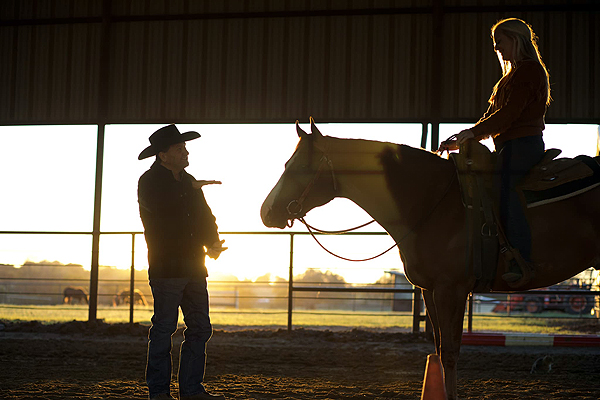
“Yesterday is gone. Tomorrow has not yet come. We have only today. Let us begin.”- Mother Teresa. Immortality – it’s what drives people to leave their mark on the world, whether as a songwriter, an actor, an athlete, or as a parent. We all want to leave a legacy and know we’ve impacted the world […]
Continue reading …Hunt Seat Equitation Schooling Guide With Lainie DeBoer
July 27, 2024 Comments Off on Hunt Seat Equitation Schooling Guide With Lainie DeBoer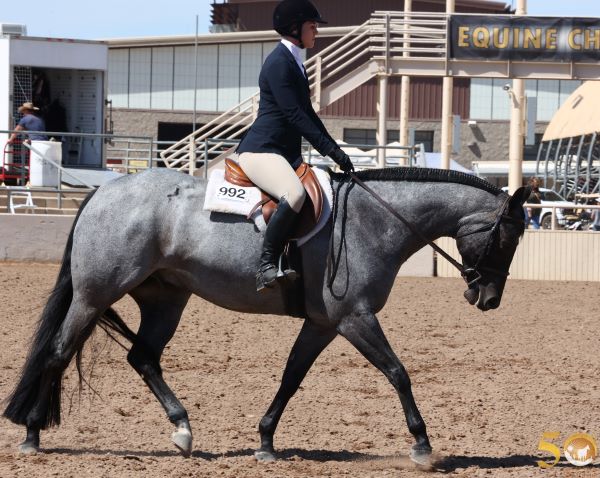
As the majors and summer shows begin, riders are always working be at the top of their game. Back in 2020, we consulted with top trainers for schooling guides while we were stuck at home! The exercises they provided based on their experience are incredible and worth resharing just in time for your shows. Below, […]
Continue reading …Researching Biomarkers to Understand Joint Health
July 26, 2024 Comments Off on Researching Biomarkers to Understand Joint Health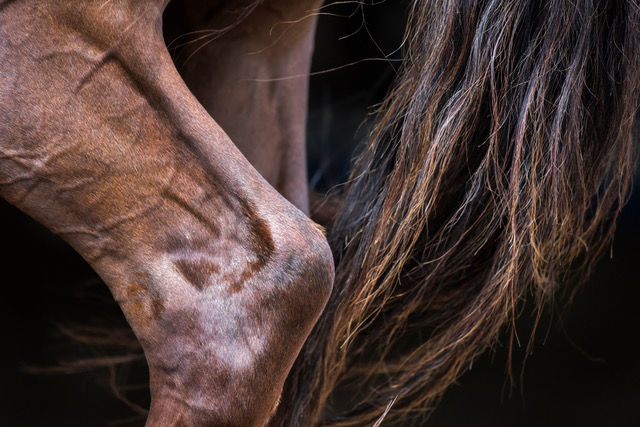
By Jackie Bellamy-Zions, Equine Guelph: Horses, like humans, can suffer from joint diseases such as Osteoarthritis (OA) and Osteochondritis dissecans (OCD), which can lead to pain and lameness. Currently, diagnosing these conditions early is challenging, and there’s no treatment that can reverse the damage. In a pathfinding study, Ontario Veterinary College researchers are investigating tiny molecules […]
Continue reading …
From AQHA: No matter the discipline in which you compete, your horse’s stride length is important. Longer strides mean faster times, bigger jumps and prettier movement. To get that edge, horse owners often focus on muscle conditioning and joint health. Another key area in which to focus performance horse management is digestive health, specifically equine stomach […]
Continue reading …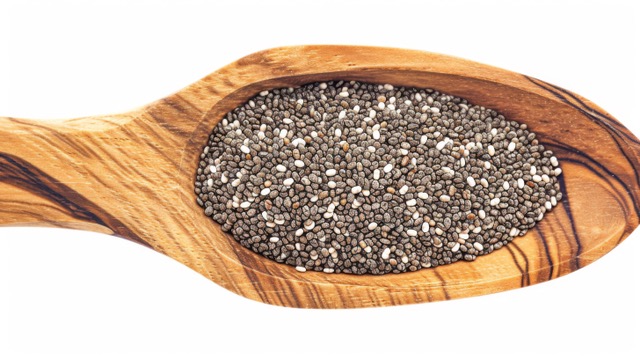
By Kentucky Equine Research Staff: Chia seeds are small, round seeds that are generally considered a healthy addition to human diets. The seeds come from the plant Salvia hispanica, which is a member of the mint family and native to parts of Mexico and Guatemala. In humans, chia seeds support cardiovascular and digestive health, reduce inflammation, […]
Continue reading …New Test Available: Equine Juvenile Spinocerebellar Ataxia (EJSCA)
July 15, 2024 Comments Off on New Test Available: Equine Juvenile Spinocerebellar Ataxia (EJSCA)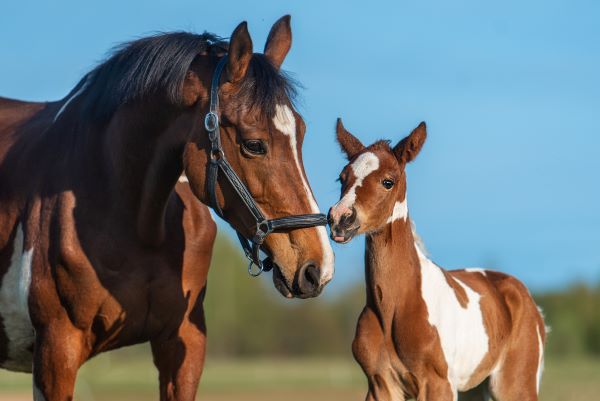
By Liza Crissiuma Gershony, UC Davis Veterinary Medicine, April 09, 2024 Equine Juvenile Spinocerebellar Ataxia (EJSCA) is an inherited neurologic disease that causes ataxia in American Quarter Horses. The variant causing this disease was identified at UC Davis by Dr. Carrie Finno, Gregory L. Ferraro Endowed Director of the UC Davis Center for Equine Health (CEH), and […]
Continue reading …







